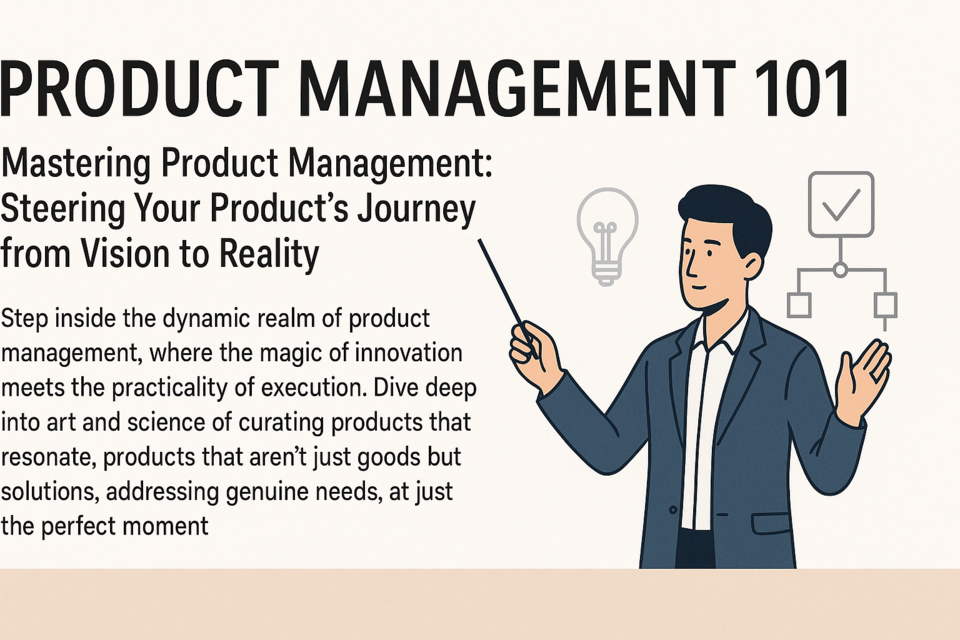Franchises are very popular form of business today. There is quite an allure to franchise ownership because of the known stability of the company an entrepreneur wishes to franchise with. Franchises are businesses which already have an existing product or service in the marketplace. The entrepreneur enters into a contractual agreement with the franchisor to use their name and business operation plan in exchange for a fee or franchise cost. You know many of the common franchises by name such as McDonalds, Pizza Hut, 7-Eleven, Duncan Doughnuts and others you see on your daily drive.
Let's discuss the benefits and opportunities available in a franchise. Many entrepreneurs chose franchise operations for a number of reasons. These include:
-
You have the benefit of going into business for yourself but not all by yourself. Franchise owners have the benefit of using an established system for running their business. This eliminates much of the guesswork and trial and error.
-
An established product or service with brand-name recognition. Franchises have the benefit of an established customer base which would take a new business years to establish. Your product may already be known and consumers recognize that is has a certain level of value and quality.
-
Pre-opening support. Franchises offer many benefits before your company opens such as specialized financing, training, opening the doors support, location site selection, and construction assistance.
-
Ongoing support. Many franchises offer ongoing support in business coaching, mentoring and training processes and procedures.
-
Established supply and logistics chains. Many franchises have well established supply and logistical chains the typical small business could never develop with the same efficiency.
-
Bulk discounts. The size of the company often leads to rewards in buying power and building economies of scale. Franchises afford the benefit of numbers in the purchasing game that are much harder for a single business owner to duplicate.
-
The known name. Franchises carry the benefit of name recognition in the marketplace. Consumers know and trust them.
-
The established framework. Franchises have well developed, time tested operational documents that a single business owner would have to create themselves such as contracts, or supplier agreements, labor forms, timekeeping, and employee manuals. Franchises have these in a one-stop shopping format that is ready to go.
-
No need to name the company. Many new business owners get too focused on startup details which include the amount of time it takes to think up a name, develop a logo, design letterhead and other details that individualize their company. Franchises already have these developed and come with the brand recognition.
-
Financing. It is much easier to obtain bank financing for a known name brand than your own startup company which is not known.
-
Reduced risk of failure. Franchises have a higher risk of growth than individual companies because of the time tested methods used for product development, marketing, and growth.
Let's discuss the disadvantages of franchise ownership.
-
You lose autonomy and independence. Franchise owners are required to adhere to the franchise agreement. Franchise agreements affect what can be sold, what geographic territory you can cover or "own", and what prices you can charge. These are typically the most serious disadvantages to becoming a franchise ownership. In some ways these are a good thing though, it helps maintain the brand identity and business operational continuity. Having specific standards helps build operational efficiency too. Many of the franchise operational components are standardized to remove the guess work. For instance, you do not have to decide what color of sign to order for a McDonalds sign. It comes as the Golden arches and is typically red and yellow. You never see blue and white McDonalds arches and, as a franchisee nor would you want one.
-
You have to pay an initial franchise fee. Depending on the company it can range from a few thousand dollars (such as a mobile auto detailing franchise) or several millions.
-
You have to pay royalty and advertising fees. Royalty and advertising fees are ongoing charges based on the number of franchises you own, geographic location, years of operation and so on.
-
Limitations on renewals. The duration of franchise lengths are limited and you may not have input into a termination. You may have owned a franchise for several years and then may not have an option to renew.
-
Poor underlying support. There are pros and cons to new up and coming franchises. One of the cons is that the underlying support system of the owning company may result in poor management abilities. Meaning that your franchise is only as good as the company ownership of the franchise. If it is not well managed or is performing poorly in your region it may inhibit your growth and performance and the other franchises within your area.
-
Lower profit margins. Portions of your profits go to the franchisee where in your own company they would go to you.
-
Name problems. If an event happens at any one of the franchises which is untoward such as employee misbehavior or customer service issues that make social media, it impacts all of the franchises not just one.
-
Higher startup costs. Franchises typically require a greater initial cost than comparable small business startups due to franchise parameter constraints.
Typical requirements of franchise ownership include:
-
A minimum initial franchise fee (total upfront cash)
-
A royalty fee (percentage)
-
A marketing fee (percentage)
-
A franchise term (in years)
-
Investment range (total amount you will have invested in the location and start up equipment requirements)
-
Liquid capital requirement (total cash you must have)
-
Net worth requirement (total value net value you must have in cash and investments)
-
Number of managers (requirement for the number of store managers you must have)
-
Building size (the size requirements for your building)
-
Lot size (the size requirements for the lot your building is placed on)
-
Minimum number of stores (some franchises require you purchase a minimum number of locations in a region)
Franchises will have key requirements in the franchise agreement. These are requirements that you must adhere to as the owner of a franchise. Let's discuss some of these now.
-
The use of trademarks. This section will tell the franchise owner how they are able to use the trademark for the franchise. There may be restrictions on its application or use on signs, or letterhead, or uniforms.
-
Franchise location parameters. This will include documentation of the franchise owners exclusive rights to a territory based on their agreement.
-
The terms of the franchise. This includes the duration of the franchise agreement, purchasing rights, and renewal rights.
-
Franchise fees or royalties. This section includes all mandatory fees to the franchisee, what fees are received, and when they are due.
-
Obligations of the franchise. This tells what the franchise owners responsibilities are in terms of the agreement of the franchise. This includes daily operations, record keeping, and training requirements.
-
Franchise restrictions. This tells of the required quality standards, the approved suppliers, hours of operation, approved prices, and approved advertising.
-
Renewal and termination requirements. This section includes termination rights and obligations, transfer agreements, and renewal requirements.
A potential franchise purchaser should read the "Franchise Disclosure Document" (FDD) closely to fully understand the terms and requirements of owning the franchise. There may be some requirements you are not willing to work with and may be a deal breaker for you as an owner.
The Franchise Disclosure Document will help you make an informed decision as an owner. The Franchise Disclosure Document is required by the Federal Trade Commission. The key business information covered in the document includes information on the franchisor and any parents, predecessors and affiliates. This section provides a description of the company and its history, and locations of other franchises. It also provides information about the experience of the owners and biographical information about the company such as any bankruptcies or litigation proceedings in the past or currently pending. In addition it will contain any information on pending bankruptcy, the initial fees and initial investment requirements. Sometimes this amount is negotiable sometimes it is not. You may ask if you qualify for a lower fee. Remember that not all of the cost are included in this list such as the cost of products or inventory. Next you will see the restrictions on your products and services that are required to meet specific selling standards. The next section will list your contractual obligations in the franchise agreement. Be careful to look for Franchise Disclosure Document descriptions that are not the same as the franchise agreement. You'll also see a section of financing which tells the degree to which the franchisor will lend money to the franchisee and what the credit terms are. Another section will tell about the franchisor's assistance which includes any advertising, training, or specialized computer systems and proprietary software. Another section will tell about the service requirements for your geographic area. Make sure it provides for geographic protection of your franchise. You may have the requirement for your obligation to participate in the operation of the franchise. This means that you may be required to spend a certain amount of time at the franchise running the location to make sure you are devoting the proper effort. The renewal, termination, and transfer requirements will also be included. At this point in the negotiation try to perpetuate as many financial opportunities as you can. You don't always have the right to renew the franchise agreement and another buyer or franchise purchaser may come by who offers higher royalties or payment structures. Carefully review any financial performance projections or representations. Many times this information will not be included in the Franchise Disclosure Document unless specifically requested. Read this information carefully to review the profit and loss statements and the balance sheet. The final section of the Franchise Disclosure Document will contain the contracts you are required to sign and the receipt you must sign upon initiation.
These are the key informational components it will contain.
-
List of initial required investments.
-
Financing arrangements or opportunities for financing.
-
Intellectual property requirements including the trademark use and any proprietary information.
-
Calculation of initial franchise fees.
-
Ongoing fees.
-
Obligations of the franchise owner.
-
Restrictions of the franchisor on the franchisee for sale of its products or service use.
-
Territory coverage the franchise owner has and restrictions for its use.
-
Assistance given by the franchisor such as training or specialized computer software or systems.
-
Renewal and termination requirements. This section tells renewal and termination rights and restrictions.
-
Contracts section contains the contracts the franchise owner must sign.
There are some decision making tools an entrepreneur can use for decision making in franchise ownership. We developed this simple chart of key franchise agreement license requirements you will want to review prior to selecting a franchise. The following table can be used as a checklist to evaluate a potential franchise relationship. It will help determine what indicators to look for in contracts.
Franchise license agreement analysis
|
Component |
Impact |
Score |
|
Franchise fees |
Affects the initial startup cost requirements |
Higher franchise fees generally indicates the quality of the franchise |
|
Renewal |
Affects your potential income based on the number of years you can renew. |
The ability to renew is good and positive |
|
Franchise Disclosure Document terms |
Tells the length of the contract and is used to calculate current value to a stream of future income. |
The longer the terms the better the deal. |
|
Logistic and supply contracts |
Determines if you have to but supplies through the franchisor at a higher cost or if you are permitted to use pre-negotiated contracts. |
Pre-negotiated contracts are desirable. |
|
Marketing fees |
The percent of revenue you must commit to marketing. |
A higher percent is a good indicator your franchise will be well marketed. |
|
Royalties |
The percent of revenue paid to the franchisor on a routine basis. |
Similar to franchise fees a higher royalty indicates the success, quality, and desirability of a franchise. |
|
So what should you ask the potential franchisor? You want to make sure you're making the best decision possible. There are many questions you want to ask about the products and services and franchise, financial costs and investment requirements, marketing costs, training provided, and operational aspects. When inquiring about the franchise products and services you want to know:
When inquiring about your franchise training you want to know:
When inquiring about daily operations you want to know:
Key points to make you successful as a franchise owner. Talk to other franchise owners who have been in business for a few years. Ask them how long were they in business before it turned profitable and what portion could they use to support themselves as it grew. Ask them about existing sales and potential ones. Be sure you are clear on the services you receive before, during, and ongoing for your business. Initially this includes development assistance, financing, training, and site selection. Ongoing this includes advertising, marketing, training, and field support.
Inquire about the octane ratio of the number of franchise units the franchisor has taken back and resold. A high number of returns and resales could be a warning sign.
Read, understand, and seek clarity for termination, transfer, or renewal rights.
Evaluate the financial statements the franchisor present to you. You should receive a balance sheet and income statement indicating financial viability and reliability.
Always read all of the attachments. Do not feel rushed and ask for additional time prior to signing.
Your goal as a franchise owner is to develop the franchise to its full potential. Make sure you understand the risks and have the necessary financial backing to maintain your lifestyle until the franchise makes profit. Once you have signed the Franchise Disclosure Document take full advantage of the opportunities given by the franchisor. Make sure you follow their system within your license. They will help you grow your business and expand your product line. Project enthusiasm for your new business with your friends and family. Focus on your customers and your employees. Give your customers the services they desire and let them know you appreciate their business. For your employees, always hire the best, and treat your employees with respect. Provide them a rewarding and challenging atmosphere to work in. Make sure you provide them frequent training so they understand your products well and are able to sell them successfully. Make sure you reward the success with raises and promotions. And last but not least, tie your franchise to your community by letting your customers know that you support those who support you. Give back to school groups, sports teams, and provide support for community events.
Summary and Take Away Franchises are both a challenging and rewarding opportunity. Franchises are a very popular form of business today because of their established representation in the marketplace and as a known entity. Franchise ownership is very alluring for many entrepreneurs because of the established framework which provides easy entry into the marketplace. There are many pros and cons to franchise ownership. You want to be aware of Franchise fees, Renewal requirements, Franchise Disclosure Document terms, Logistic and supply contracts, Marketing fees, and Royalties. Franchise ownership may be the right fit for you depending on your desired business. |
In order to frame your desires as a franchise ownership is important to have a specific goal for your company and for yourself. Franchise ownership grows into multi-unit ownership over time. As these units grow they create a significant amount of wealth for their owners and quite often franchise owners reinvest into additional franchise units. Most franchises do a significant amount of annual sales. There are other tangible benefits you will realize as a franchise owner. Most franchise owners will say that they're excited to never have to work for anyone again and have the freedom to do what they desire and create wealth for their family. It is a great sense of accomplishment and helps build a future for the franchise owner. Owning a franchise is a major commitment. You will work hard and there will be stress. There will be bad days and good days but you have a great deal of control over the outcome. A franchise gives you a great deal of control over your destiny.





























